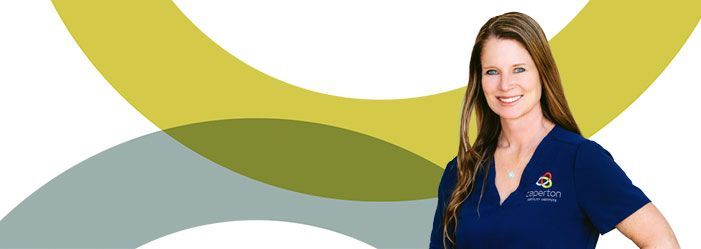What It Means to Be an IVF Egg Donor: A Message from Dr. Kelly Caperton
Dr. Marika Raff • May 5, 2025
At Caperton Fertility Institute, with locations in Albuquerque, NM, and El Paso, TX, we witness inspiring acts of kindness every day. Among the most generous is the decision to become an egg donor. As a physician, mother, and fertility specialist, I am continually moved by the women who choose to give the gift of parenthood.
If you're thinking about becoming an egg donor, thank you. Your choice can forever change someone’s life by helping them build the family they have long dreamed of.

Why Egg Donation Matters in IVF
Not everyone can conceive using their own eggs. Individuals may face fertility challenges due to medical conditions, age, or genetic risks. Egg donation offers hope to couples, same-sex partners, and single parents by choice who are looking to grow their families.
Donated eggs allow intended parents to experience pregnancy and childbirth, even when using assisted reproductive technology (ART). Your contribution extends far beyond biology—you are helping create life and offering healing during one of the most emotional journeys someone can face.
Who Can Become an Egg Donor?
We welcome compassionate, healthy women between the ages of 19 and 33 to consider becoming an IVF egg donor. Ideal candidates:
- Are non-smokers with regular menstrual cycles
- Have no major hereditary medical conditions
- Are willing to complete a thorough screening process
This includes medical, psychological, and genetic testing to protect both the donor and intended parents. Many donors find the experience educational and empowering, gaining valuable insights into their own reproductive health.
The Egg Donation Process Explained
Once matched, the IVF egg donation process takes about 6 to 8 weeks. Here's what to expect:
- Initial Screening: Includes physical exams, genetic evaluations, and psychological assessments.
- Ovarian Stimulation: Hormone medications are administered to stimulate the production of multiple eggs in one cycle.
- Egg Retrieval: A short, outpatient procedure performed under light sedation collects the eggs. Most donors resume normal activities within a day or two.
Throughout the process, our expert team at Caperton Fertility Institute supports donors with compassionate, personalized care.
Compensation and Gratitude
Egg donors receive generous financial compensation for their time and commitment. But most donors say the real reward is knowing they've played a key role in helping others experience the joy of parenthood. Many even choose to donate more than once, building meaningful connections with our team along the way.
A Lasting Legacy of Love
Becoming an egg donor is a deeply personal and profoundly meaningful decision. It takes empathy, maturity, and a willingness to make a lasting impact. If you're curious about what it means to donate your eggs, we encourage you to reach out.
Our experienced egg donor coordinators will guide you through each step, answering your questions and ensuring you're supported every step of the way.
To all past and potential donors: thank you. Your generosity creates families and brings hope where it’s needed most. It’s a gift that truly lasts a lifetime.
Keywords: become an egg donor, IVF egg donation, egg donor Albuquerque, egg donation El Paso, egg donor requirements, egg retrieval process, egg donation compensation, donate eggs for IVF, egg donor screening, help others become parents

Why National Infertility Awareness Week Matters Infertility isn't rare—but it’s rarely talked about. NIAW, led by RESOLVE: The National Infertility Association, exists to: Break the stigma around infertility. Educate the public about reproductive health. Empower those struggling with infertility to speak up and seek support. Advocate for access to care and fertility benefits. Each year, this week reminds us that behind every statistic is a story—and every story deserves to be heard. Infertility Facts You Should Know 1 in 8 couples in the U.S. struggle to conceive or carry a pregnancy to term. 1 in 4 pregnancies end in miscarriage. Infertility affects men and women equally—about 30% male factor, 30% female factor, and 40% a combination or unexplained. Most people wait more than a year before seeking help—even though early intervention increases success rates. The emotional impacts of infertility can mirror chronic illness and grief, affecting mental health and relationships. At Caperton Fertility Institute, we’re here to change the narrative. We provide advanced, compassionate care backed by science—and shaped by understanding. Infertility FAQ: What People Are Afraid to Ask (But Should) How do I know if I’m infertile? If you've been trying to conceive for 12 months (or 6 months if you're over 35) without success, it may be time to talk to a fertility specialist. Does infertility only affect women? Not at all. Male fertility plays a role in nearly half of all infertility cases. That’s why our evaluations always include both partners. Is IVF my only option? IVF is just one of many fertility treatments. Depending on your situation, options might include ovulation induction, IUI (intrauterine insemination), lifestyle changes, or surgical interventions. We tailor every plan to your unique needs. Is infertility treatable? In many cases, yes. With today’s technology and expert care, up to 90% of infertility cases can be treated. Caperton Fertility Institute offers some of the highest success rates in the Southwest. How to Support Someone Struggling With Infertility If someone you care about is going through infertility, here’s how to be there for them: Listen without offering advice. Avoid saying things like “Just relax,” or “At least you know you can get pregnant.” Ask, “How can I support you right now?” Respect their privacy—but let them know you’re a safe space if they want to talk. Join them in raising awareness during NIAW. Sharing educational content or attending events together can mean the world. Let’s Talk About It—Together At Caperton Fertility Institute, we’re using National Infertility Awareness Week as a chance to not only educate, but to empower. Whether you’re just beginning to explore your fertility or you’ve been on this journey for years, you deserve answers, support, and hope. We invite you to: Schedule a consultation with our expert fertility team. Follow us on social media for educational resources, patient stories, and NIAW highlights. Share your story—because speaking up changes everything. Proudly Serving Albuquerque, El Paso & Beyond With cutting-edge technology, individualized treatment plans, and an award-winning team of fertility specialists, Caperton Fertility Institute is proud to support patients in New Mexico, West Texas, and beyond. During National Infertility Awareness Week—and every day—we’re here to help you take the next step toward the family you’ve been dreaming of. Ready to Start the Conversation? Let’s turn awareness into action.


